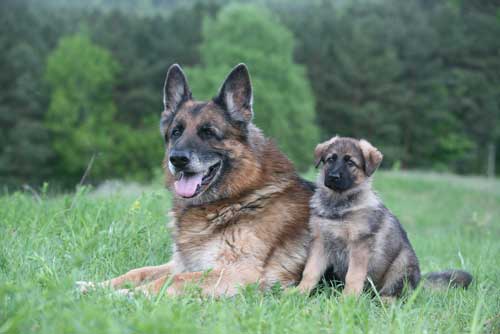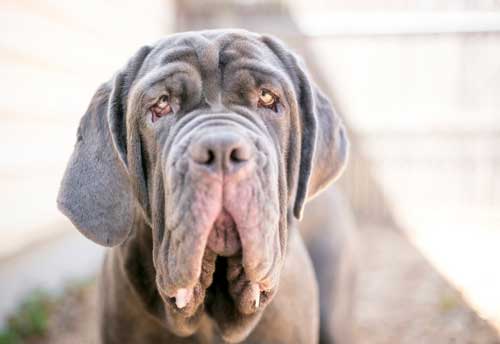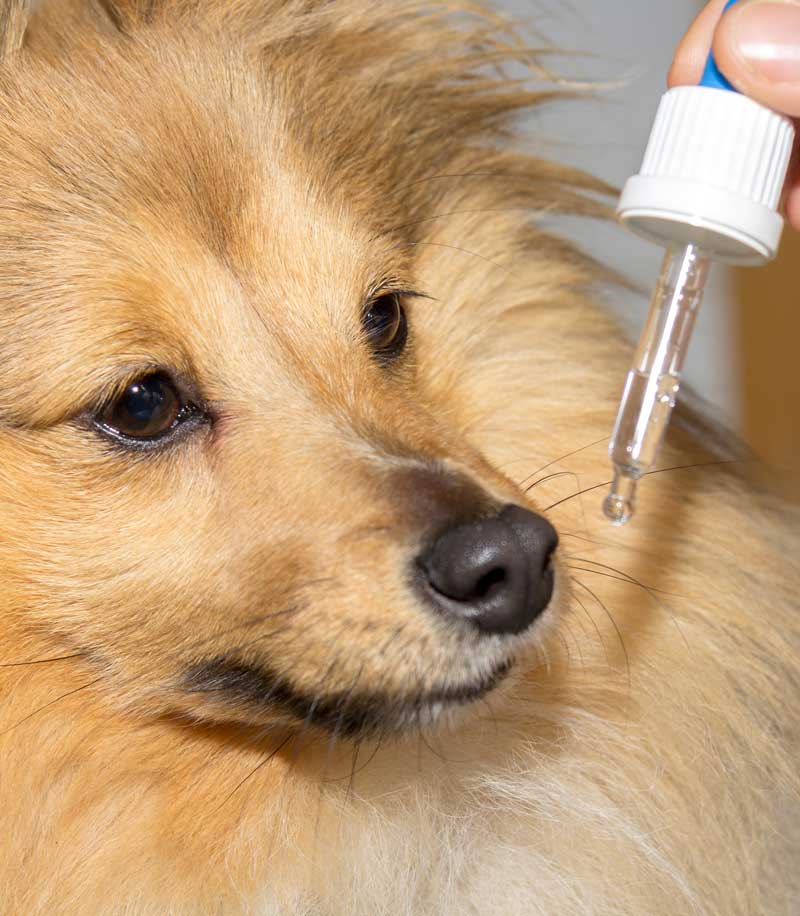It’s an all-too-common occurrence in the life of dogs: sore joints, pain and swelling, and a decrease in activity at the onset of arthritis.
Many large-breed dogs suffer from chronic hip pain and deterioration of the hip-joints (such as German Shepherds). Severe joint pain and inflammation can occur in the hips of dogs with degenerative, malformed or misaligned hip balls/joints. This malformation causes pain, swelling and lack of mobility. Hip Dysplasia can often be attributed to genetics, but rapid weight gain, trauma to the pelvic area and lack of nutrition can also increase the likelihood of developing hip-related disorders.
Ailment Guides:
Canine Arthritic Conditions
What is Hip Dysplasia in Dogs?
This genetic disorder is inherited or associated with certain breeds, such as Labradors, Retrievers and Rottweilers.
As previously mentioned, many large-breed dogs suffer from chronic hip pain and deterioration of the hip-joints (such as German Shepherds). Severe joint pain and inflammation can occur in the hips of dogs with degenerative, malformed or misaligned hip balls/joints. This malformation causes pain, swelling and lack of mobility.
What Causes Hip Dysplasia in Dogs?
Despite some assumptions about age, hip dysplasia can occur as early as 4-6 months old in dogs that are genetically predisposed to the condition. This disease is linked to degenerative cartilage and deformed/misaligned hip joints. As your dog walks/runs, the hip ball and socket grind against one another (due to the lack of cartilage), and this in turn further malforms the joints and causes great discomfort and pain.
Some breeds that are prone to Hip Dysplasia:
- Rottweilers
- St. Bernards
- German Shepherds
- Golden Retrievers
- Bulldogs
- Mastiffs
- Labrador Retrievers
Symptoms of Canine Hip Dysplasia in Dogs:
Hip dysplasia is a debilitating ailment, and it can lead to other conditions like chronic arthritis, bone spurs and crippling inflammation.
Symptoms of Inflammatory Arthritis:
- Lameness
- A narrow, hind-leg stance
- Swollen joints
- Popping/cracking when mobile
- Licking/biting around the hip area
- Difficulty rising from rest/sleep
- Loss of appetite (accompanied by weight gain)
- Unwillingness to be active/mobile
- Decreased range of motion
- Whining, panting, or whimpering
- Unexpected aggression towards humans or other dogs
- Lethargy
- Wincing or irritation when touched
- Increased sleep
- Increase in shoulder muscle mass (bulging)
- Loss of thigh muscle mass
- “Bunny-hopping” gait or limping
Learn More:
How To Give Your Cat Cbd Oil
Cbd For Nausea Treatment In Dogs And Cats
Cold Weather Pet Safety Tips From Ears To Paws
CBD for Dogs With Hip Dysplasia
CBD for hip pain is a very popular use of this natural remedy. Hip dysplasia in dogs is becoming more common across multiple canine breeds, and although it is not typically life-threatening this condition can have serious ramifications on your dog’s quality of life.
CBD for your dog’s hips can provide the necessary relief from pain, inflammation and stiffness associated with hip dysplasia in dogs. Whether your pooch suffers from chronic soreness or swelling, or your canine is showing the first signs of hip dysplasia, CBD oil and treats can be an important part of an effective treatment regiment.
Cannabidiol is a great option for treating many different kinds of pain, but many dog owners are relying on CBD oil and treats for their dog’s hip dysplasia. CBD can help to ease chronic pain, reduce inflammation and prevent joint stiffness from crippling your canine. CBD for hip pain can be taken throughout the day as a preventative measure/supplementally, or relied upon for on-demand relief from soreness and swelling.
How doe CBD help with your dog’s hip pain? CBD can help your dog by producing anti-inflammatory, anti-anxiety, antipsychotic, antispasmodic and analgesic effects indirectly – that is, CBD interacts with your dog’s ECS (Endocannabinoid System) opposite to THC which directly binds to the Cannabinoid Receptors of the body. This does two things: makes the positive remedial properties more bioavailable to your dog; and lessens or negates the psychoactive effects, such as those associated with THC ingestion.
As you can see by the wide scope of ailments that CBD effects, it is clear how introducing CBD into your dog’s routine can help to maintain a healthy joints, free from inflammation and chronic pain.
Ailment Guides:










